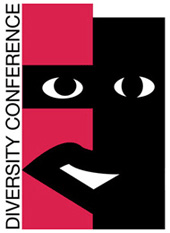Call for Papers
Submission Deadline
Proposal Types
Submission Process (30-minute Paper, 60-minute Workshop)
Submission Process (90-minute Colloquium)
Submission Process (Virtual)
Can I submit more than one proposal?
Do you provide invitation or visa letters?
You may submit a proposal to the Conference Review Committee for an In-Person Presentation, or a Virtual paper at the Diversity Conference. If your Conference proposal is accepted you may submit a written paper to The International Journal of Diversity in Organisations, Communities and Nations.
Submission Deadline
The deadline for the final round in the Call for Papers for this conference has now passed. Please visit the Call for Papers page for next year’s conference for in-person and virtual submissions.
Submission Process
In-person Proposal (30-minute Paper or 60-minute Workshop):
- Submit an in-person proposal via the ‘Submit Proposal’ link on this page.
- Once a proposal is accepted, the author must submit a paid registration for the Conference. Note that, only one proposal in any format may be accepted per registered presenter, except in the following case:An author submits Proposal A for one in-person paper, and submits Proposal B for an additional, co-authored, in-person paper. This author will submit a paid in-person registration for Proposal A, and at least one of her/his Proposal B co-authors must submit a paid in-person registration. The two registrations (for Proposal A and Proposal B) permit both papers to be presented at the Conference and submitted to the Journal. If all of the co-authors of Proposal B are unable to attend, one of the co-authors will need to submit a paid virtual registration in order to submit the paper to the Journal.
- Once we receive the necessary paid registration(s), your presentation(s) will be scheduled in the draft program of the Conference. Note that we cannot schedule your session(s) in the program until we receive the paid registration(s). The draft program of the Conference is usually available about 4 weeks prior to the Conference.
In-person Proposal (90-minute Colloquium):
- Submit an in-person proposal via the ‘Submit Proposal’ link on this page. Remember, there must be at least 5 participants – for example, 4 presenters and a chairperson. All participants must be listed on the proposal submission form (list as one primary author, and 4 co-authors).
- Once the proposal for the colloquium is accepted, each participant must submit a paid registration for the Conference.
- Once we receive all participants’ paid registrations, the colloquium will be scheduled in the draft program of the Conference. Note that we cannot schedule the colloquium in the program until we receive all participants’ paid registrations. The draft program of the Conference is usually available about 4 weeks prior to the Conference.
Virtual Proposal:
- Submit a virtual proposal via the ‘Submit Proposal’ link on this page.
- Once a proposal is accepted, the author must submit a paid registration for the Conference. Note that, only one proposal in any format may be accepted per registered presenter, except in the following case:
An author submits Proposal A for one virtual paper, and submits Proposal B for an additional, co-authored, virtual paper. This author will submit a paid virtual registration for Proposal A, and at least one of her/his Proposal B co-authors must submit a paid virtual registration. The two registrations (for Proposal A and Proposal B) permit both papers to be submitted to the Journal. - Once we receive the necessary paid registration(s), your paper(s), if accepted, will be published in the Journal. Note that we cannot publish the accepted paper(s) in the Journal until we receive the paid registration(s).
For further information, contact the Conference Secretariat.
Proposal Types
In-Person Presentations
Non-Attending Presentation
Presentation/Paper Focus
The Diversity Conference is a participants’ conference comprised of numerous parallel sessions and selected plenary sessions. Participants are invited to submit proposals as either 30-minute, 60-minute or jointly presented 90-minute presentations. A virtual participation is also available if you are unable to attend the Conference in-person. All proposals, presentations and papers must be in English.
Only one proposal for an in-person presentation may be accepted per registered presenter. This means that two proposals may be accepted in the case of two registered presenters in a joint presentation, as long as both presenters are registered as in-person participants. If one person registers as a virtual participant (instead of an in-person participant) the paper on which they are a co-author will be fully eligible for Journal submission, but will not be listed in the Conference program.
If your proposal for an in-person presentation has been accepted, we cannot schedule your session in the Conference program until you have submitted a paid registration.
In-Person Presentations
30-Minute Presentation
A Conference session involving a 15 minute speaker presentation, followed by questions and answers. Common Ground usually provides graduate students to chair all of the parallel sessions. If you wish, you are welcome to chair your own session or provide your own chair or facilitator for your session. The chair’s role is to introduce the presenter and keep the presentation within the time limit. We recommend against reading entire papers, and suggest that handouts (20 or 30 copies-please bring these with you, as there are no photocopying facilities at the Conference) and visual supports (data slides or overhead transparencies) to assist delivery. Multiple-authored presentations are welcome, though only one article may be submitted to the Journal based on each presentation.
60-Minute Presentation
A workshop, crafted panel, staged conversation, dialogue or debate. This is a Conference session involving substantial interaction with the audience. It must not simply be a long paper – papers are for 30-minute sessions only. If you wish to submit an article to the Journal based on a workshop session, it should be a single article, jointly authored if appropriate.
90-Minute Colloquium
A Conference session involving at least five registered participants (for instance, a chair or facilitator plus four or more presenters who present for no more than 15 minutes each). At least 15 minutes must be left for audience interaction. The Conference committee does not organise these sessions. Presenters need to conceive and design the session and submit a proposal via the ‘Submit Proposal’ link on this page. All participants must be listed on the proposal submission form (list as one primary author, and 4 or more co-authors). Either a single article or multiple articles may be submitted to the Journal based on the content of a colloquium session.
Non-Attending Presentation
Virtual Presentation
A paper submitted without the participant attending the Conference in person, but eligible to be refereed and published (if accepted) in the Journal. A virtual registration allows you to join the Conference community in the following ways:
- Your Conference proposal will be listed in the Session Descriptions of the Conference. Acceptance of a Conference proposal for a virtual participant is based on the same criteria as that for an attending participant.
- You may submit a paper to The International Journal of Diversity in Organisations, Communities and Nations.
- Your Journal paper submission will be refereed by Conference participants and you will in turn referee paper submissions of other Conference participants.
- If accepted, your paper will be published in the same volume as Conference participants from the same year. You will also have online access to all papers published in the Journal from the time of registration until one year after the Conference end date.
You will receive the Community Newsletter.
Presentation/Paper Focus: Practice, Research or Theory
Referees for presentation proposals and of submitted papers will base their assessment upon the kind of focus of a particular presentation or paper.
Practice Focus
A presentation or publication which describes innovative or exemplary practices or programs in the community, in workplaces, in education institutions and the like. This may take the form of case studies, narratives, demonstrations or technical reports. The outcomes of practice may be improved frameworks, concepts, understandings or structures, such as enhanced capacity through the development of skills, knowledge and operational effectiveness. This kind of work may involve putting theory and research into practice.
Research Focus
A presentation or publication reporting upon original research, based on the systematic collection and analysis of data or facts. This kind of work may involve the application or testing of theory.
Theory Focus
A presentation or publication which is broad and generalising in its emphasis, reflecting upon and systematically referenced against one or more bodies of literature or systems of thought.








